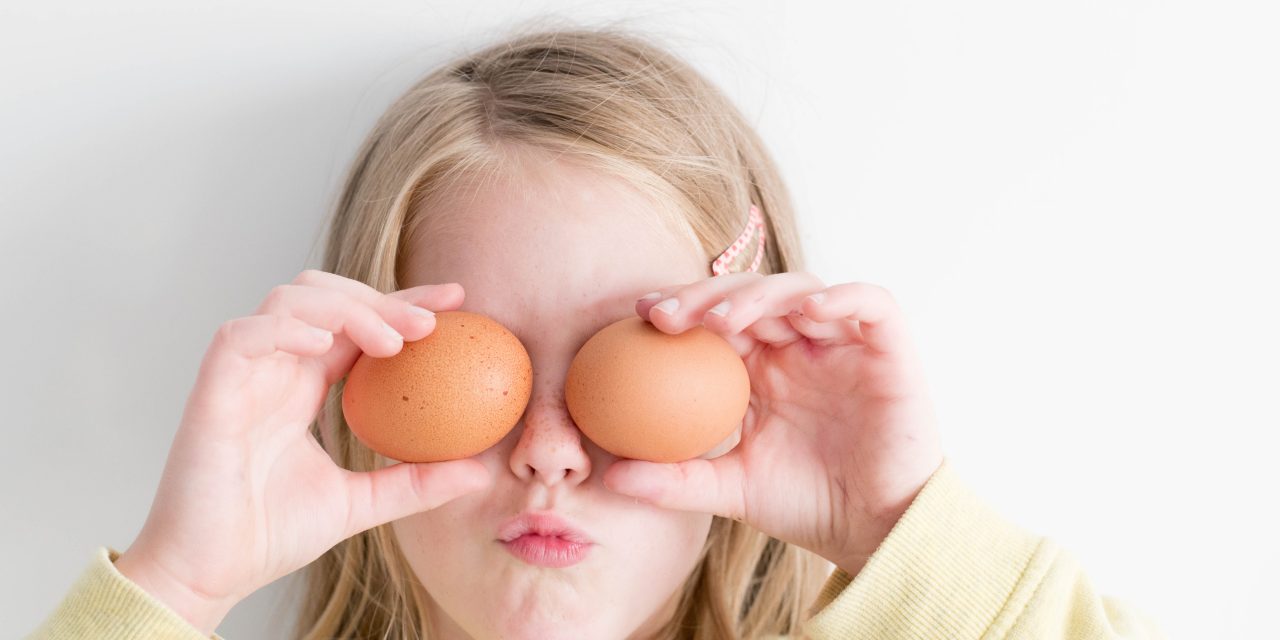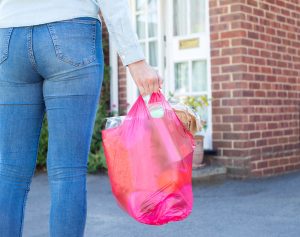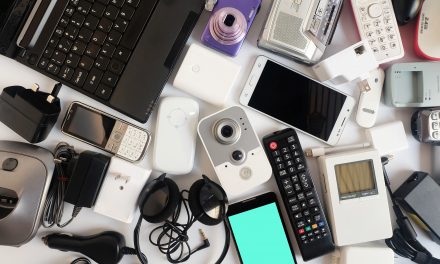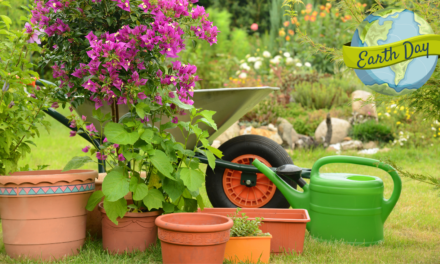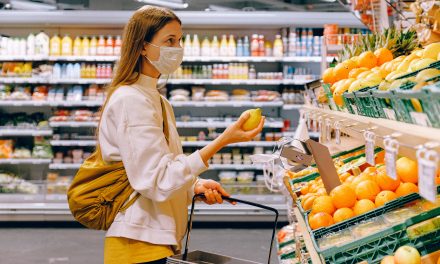With more of us at home, our waste bins are looking a little heavier than usual. And with the temptation to buy more and eat more during lockdown the hope of keeping our bins from overflowing seems impossible. But is it? We’ve got some super easy hacks to reduce food waste – even whilst in lockdown.
Help and support
It can be easy to worry about running out of supplies if you need to self-isolate for one week (if you live on your own) or two weeks (if you live with other people). Couple that with the fact that we are going out to the shops as infrequently as possible, this can lead to anxiety about what we need to have at home, and if we have enough.
It’s important to remember that if you are in self-isolation, there is support available. If you are in a vulnerable group and don’t have friends and family who can help, please get in touch with your local community hub.
If you do have friends and family who live locally, who aren’t vulnerable themselves, remember that they can deliver essentials to your door. Just be sure to open your door once they are a safe distance away, even if you are not experiencing symptoms.
What do you need during self-isolation?
Our first tip is to avoid stockpiling. Every week, simply buy what you need. This will help ensure that everyone has access to essentials. Remember, not everyone is able to bulk buy and it’s vital that we all have access to items such as soap and cleaning products. You’ll also be far less likely to waste food!
With that said, what should we all try to have in our homes to ensure we can self-isolate?
- Tinned foods – tomatoes, sauces, lentils, beans and coconut milk are useful for lots of dishes are keep a long time. Canned veg and meat are also useful.
- Cupboard items – pasta, rice, soup, pulses, spices and baking supplies are all handy to have. Long life milk – one or two cartons is a good idea.
- A box of cereal or bag of oats for breakfasts.
- Frozen vegetables and fruits. Fresh stuff is ideal but if you have the room to freeze, do. That way you’ll get all the vitamins and minerals your body needs to get better. Frozen fruit doesn’t have the same texture as when it’s fresh, but it can be used in smoothies.
- Cheese! Hard cheese and halloumi last longer too.
- Pet food and supplies – you don’t want to run out of litter for your cat!
- Loo roll (but only as much as your household needs for that period). You really don’t need enough to build a small fort unless you are a big family!
- Cleaning products. The good news is that the shops are slowly returning to normal stock levels. If you can’t find anti-bacterial soap, use normal soap or even washing up liquid as these will still remove germs including COVID-19. A bottle of disinfectant or the like is essential, if you don’t have any already. The NHS has guidance on what to clean to prevent germs spreading.
- Some painkillers and medication for yourself and any children you have.
- Tissues to catch coughs and sneezes.
- Chocolate and wine. Here at Your East Sussex, we consider these treat items in moderation to be part of self care and pivotal to getting through a period of staying inside. Of course if you are experiencing symptoms we don’t recommend alcohol consumption.
So now you know what you need for self- isolation. But how can you ensure you don’t waste food on a weekly basis? We’ve got some easy tips and ideas from Love Food Hate Waste.
Buy what you need
Did you know that the average family household wastes around £70 of food per month?
- Plan ahead to reduce food waste. Don’t buy food for seven days when you know you’re likely to order a takeaway on Saturday.
- Take a picture of your fridge before you go shopping so you don’t accidentally double up on what you already have.
- Make a meal plan for the week. Check what you already have in the cupboards and fridge so you’re using up what you already have to make meals.
- Take a list of what you need to buy to the supermarket. If it’s not on the list don’t put it in the trolley!
- Avoid deals. Remember, if you won’t eat it all in time, it’s not a deal – only waste.
- Buy loose fruit and veg where you can.
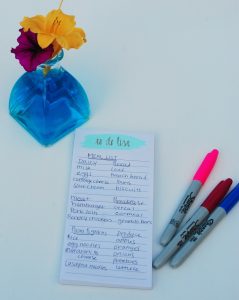
Store food properly
You can make your food last weeks or even months longer by storing it correctly.
- Store food in air tight containers. Using bag ties, clips, Tupperware or even elastics bands and pegs to ensure items are airtight can go a long way!
- Chill the fridge out. Make sure your fridge is set to the right temperature. It should be between 0- 5 c. Use Love Food Hate Waste’s useful tool for checking your fridge temperature.
- Find out how to store food correctly and what you can freeze using Love Food Hate Waste’s A-Z of food storage. Not going to get through that bag of carrots by the use by date? Freeze them for another time.
Eat it all
In East Sussex, food makes up more than a third of the waste in our bins. Eating everything we buy, including the bits we’d usually throw away, can help reduce food waste.
- What do our food date labels really mean? Can we still eat food that is past its best by date? Yes you can! Although never eat something that has passed its use by date. A top tip is to freeze the item if you aren’t sure you’ll eat it by then. Food date labels are explained.
- Eat it all. Learn how you can avoid chucking the end of a loaf, wilted veg and cauliflower leaves with Love Food Hate Waste’s compleat food guide.
- Only got the odd sad-looking carrot left in your fridge? Check out these ideas for using odd bits of old fruit and veg up.
- Finally know how much pasta you need per person with this handy portion planner.
Composting
Adding vegetable peelings to your compost heap is a great way to put waste to good use (and keep it out of your kitchen bin). Some torn up cardboard packaging is great for your composting ‘mix’ too!
If you live in an area covered by Lewes District Council there is currently a kerbside scheme that collects food waste. We also provide great value garden compost bins.
Live in a flat or don’t have time to garden? Learn how to compost without a garden.
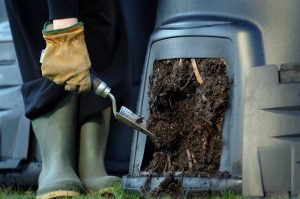
Recycle
More and more of us are recycling and it’s important to keep this up during lockdown.
Be sure to read out our ultimate guide to recycling, where you can check you’re recycling everything you can from home, plus hacks for fitting it all in your recycling bin.
Top tips for avoiding food waste:
- Out of Tupperware? Use old jars or ice cream tubs to store left overs in your fridge or freezer.
- Cook vegetables nearing their use by date into meals and freeze them so you have some healthy dinners ready if you need to self-isolate.
- Place food that will reach its use by date first at the front of the fridge.
- Always throwing out half a loaf of bread? Freeze your bread as soon as you buy it. Simply defrost slices as and when you want to make toast or a sandwich.
- No long-life milk? Avoid buying more fresh milk that will probably go off before you can get to it – unless you can freeze it. How about keeping a small bag of oats back instead? If you have 100g of oats you can blend up a bottle of oat milk that will keep in the fridge for a five days until you’re able to buy your preferred milk. It tastes similar to cow milk and is healthy.
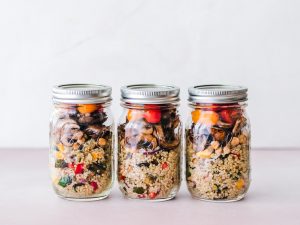
For more tips to reduce food waste please check out the Love Food Hate Waste website.
If you are self-isolating please be sure to follow government advice: COVID-19: guidance for households with possible coronavirus infection.
What top tips do you have to reduce food waste? Share them in the comments section below!
*The statistic of food makes up more than a third of the waste in our bins, is provided by East Sussex County Council’s Waste Team and is the latest figure available from 2017.
